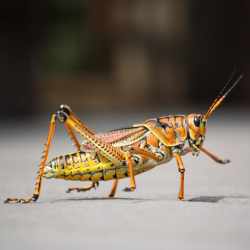DEIP
Design Edible Insect Products
|
|
September 2019 - April 2020
Research program "RFI Ouest Industries Créatives"
Project carried by the GRANEM, in partnership with Nantes University and the School of Design |
Research team
Scientific coordinator : Gaëlle PANTIN-SOHIER, professor in the GRANEM / Angers University
Coordinator : Céline GALLEN, PhD in the LEMNA / Nantes University
Coordinator : Dolly DAOU, director of the Design Lab « Nouvelles Pratiques Alimentaires » at the School of Design Nantes Atlantique
Lise MAGNIER, assistant professor at the Product Innovation Management /T U Delft
Presentation
The objective of this project, co-carried by Angers University, Nantes University and the School of Design, is to enhance the food consumption experience of a discontinuous innovation represented by insects in food (Gallen, Pantin-Sohier and Peyrat-Guillard, 2019). It aims to develop the design of new products allowing to modify the representations of this new food through the implementation of experiments based on a design methodology (creation, co-creation, design thinking). This research therefore relies on a hybrid approach based on both creative techniques, via product design, packaging, service and system design and graphics, which make it possible to respond to research issues in science, management and more particularly in marketing and consumer behaviour.
The project addresses food issues that are important to design and marketing, namely the ability to feed the planet and its ecological impact. In the food industry (20% of the biggest brands), the place given to design is still marginal and innovation is most often the result of Marketing and R&D departments.
This project aims to show that design methodology, combined with a marketing approach, is a promising way to bring radically innovative products to the market. A user-centred qualitative research methodology will test existing quantitative data (targeting young people in terms of ability and lifestyle transformation). Based on the imagination, the design workshops will allow experimentation with different cultural approaches that can create a social impact on the aspiration to consume insects and the transformation of eating habits. It will highlight the socio-economic values underlying the consumption of insects in France, with a multidisciplinary team, an international contribution from the University of TU Delft and a post-doctoral student from Brazil.
Scientific background
We are witnessing a transformation of food patterns due to population growth, resource scarcity, and growing health concerns (van Huis et al., 2013). This is leading companies to introduce radically new products such as insects to the market. Indeed, eating insects is part of a healthy and sustainable food perspective. However, the major challenge in the West is to familiarize consumers with insects in order to reduce taste aversions and modify mental representations to make them "culturally edible" (Corbeau and Poulain, 2002), while reducing the perceived danger and associated disgust.
Supporting this protein transition involves studying the uses and imaginary (mental representations) of consumers (Gallen, 2005) as well as the conception of the experience associated with these new practices. The aim is thus to test the impact of design and communication strategies enabling consumers to categorize insects as edible foods and promoting their dissemination.
Originality of the project
In line with the challenges of Design Lab Nouvelles Pratiques Alimentaires - how to feed the planet now and in the future? - we use practical design and research methodologies to experiment and analyze food products. For example, we study the role of packaging types, materials, transparency, messages and appropriate distribution channels (shelf, type of store, signage, events) on consumer perception. Indeed, Radford and Bloch (2011) point out that the novelty of a product is widely communicated through its design, which is also linked to and influences the imaginary experience.
This project thus aims to identify the sources of information used by consumers to generate inferences (taste, quality, benefits...) (Mitchell and Olson, 1981; Graeff and Olson, 1994) about insects as food. The food product must integrate both the food experience, the emotion generated and acceptability of the products, and the cultural perception of food.



